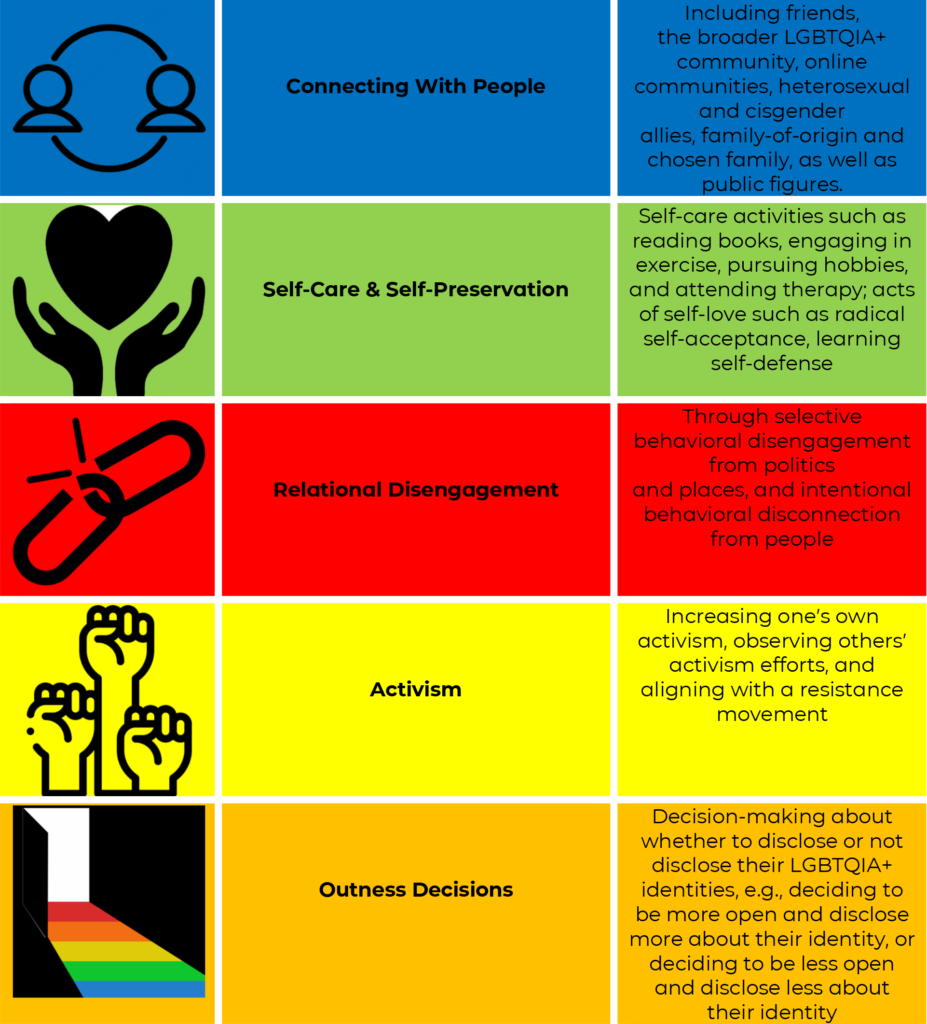The concept of Intersectionality is key in understanding wellness for all, especially members of the LGBTQIA+. Briefly, this is the concept that the many, interrelated systems that exist in our world and that often influence power and autonomy impact those who are most marginalized in society. To promote wellness, it is important to look beyond a person’s individual identities and focusing on the points of intersection that their multiple identities create to try to better appreciate their lived experience. To be a health care provider, or simply a good friend, family, or ally, an intersectional lens is needed.
You can learn more about Intersectionality, how it manifests, and how we can use what we learn from taking this perspective to promote wellness at http://www.lgbtiqintersect.org.au/learning-modules/intersectionality/. Some key take-aways are reflection questions are below.
Key Points
- Part of taking an intersectional approach is recognizing people’s lives are multi-dimensional and complex; we expect multiple stories
- Human lives cannot be explained by single categories, such as gender, race, sexual orientation etc. Lived experience is an interactive process that goes beyond individual labels
- Lived experience is shaped by the interaction of identities, contexts and social dynamics
- People can experience privilege and oppression simultaneously
- Structural inequity interacts with contextual factors and social dynamics, increasing marginalization, inequity, and health disparity
- To understand someone’s experience, we must also understand structures and systems
- Relationships involve power dynamics and power imbalances are inevitable. The question is how we acknowledge and negotiate power, particularly in institutions
- Reflexivity can support service providers to increase their awareness of their positions of power
- Urges transformation and collective work towards social justice
Reflection Questions
- How do your own race, gender, class, sexual orientation, gender identity, and other identities intersect to form your experiences? Do you experience any forms of inequity or discrimination due to your identities? Are some more privileged? Are some less so?
- What power dynamics do you experience in your occupation, family life, and other social contexts? Are there times in which you hold more power due to the nature of the relationship (e.g. between a doctor and their patient) or vice versa? In what ways do these power dynamics affect your interactions with other people and services?
- What are some ways in which you can support people to share the complexity of their lives?



